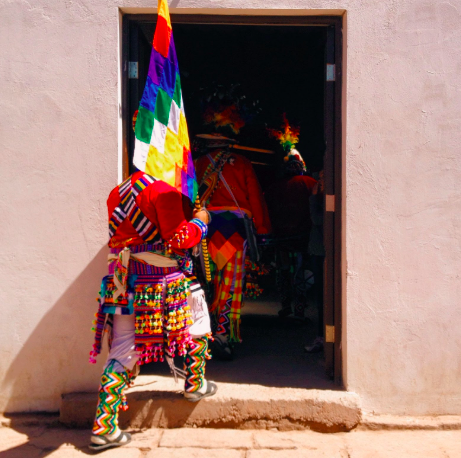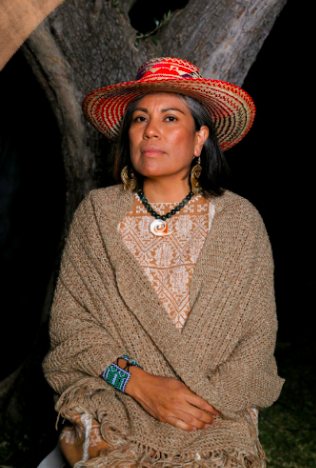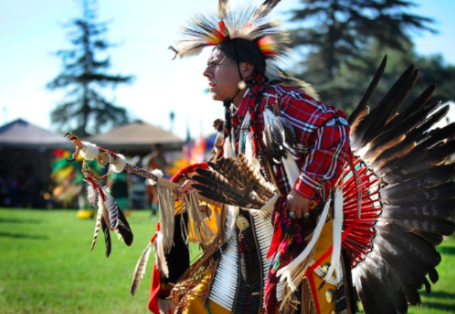FF News and Views – Nov 2023
November 2023, Volume 45, Number 174
Welcome to the November 2023 edition of the Food First newsletter. November marks Native American Heritage Month, a time for honoring the vibrant cultures and immense contributions of Native American peoples past and present. Indigenous communities have historically faced monumental challenges in the fight for food justice. In this month’s newsletter, we’ll discuss these challenges and efforts Native American people are taking to address food insecurity in tribal communities.
Honoring Native American Heritage Month

We begin by looking at the state of Native Americans through a range of metrics which underscore how much US governmental policies have marginalized and failed Native American people. Native American farming and foodways were decimated in the wake of colonization. Their lands were systematically taken and many of the ways that enabled them to be self-sufficient were compromised. US government policies long restricted Native Americans from owning livestock or agricultural equipment and was the genesis of Native American food insecurity.
Systemic inequalities like these have often left Native American communities with limited access to resources and opportunities, resulting in the following food insecurity and poverty outcomes:
Food Insecurity:
- Native American households experience food insecurity rates that are almost triple the national average. In some tribal areas, these rates can be as high as 20-30% of the entire tribal community.
- About one in four Native Americans experience food insecurity, compared to 1 in 9 Americans overall.
Poverty:
- The poverty rate on tribal lands is 31.5% compared to 13.0% in urban areas.
Issue of poverty and food insecurity reflect a range of other challenges including:
Unemployment:
- Native American unemployment rates are significantly higher than the national average, varying by tribe and region.
- In January 2022, the unemployment rate for Native American Indians and Alaska Natives was 11.1%, much higher than the national rate of 3.9%.
Disrupted Families:
- 78% of Native Americans live in urban or suburban areas.
- Of the remaining Native Americans living on or near tribal lands, many experience higher poverty and poorer health outcomes versus Native Americans in urban areas.
Climate Change:
- Climate change has disrupted their traditional ways of life and crop yields have been adversely impacted leading to declines in the availability of culturally preferred Native American foods.
But indigenous agriculture never fully disappeared – and today it is rising again through tribes reclaiming traditional practices.
Even in the face of systemic inequalities, Native American food sovereignty movements continue revitalizing ancestral crops and traditions that protect people and the planet. The path forward requires us to learn from and stand in solidarity with our Indigenous neighbors. Their voices and perspectives are essential to creating a just food system for all. If we listen, engage respectfully, and advocate for tribal rights and wellbeing, a brighter future can emerge – one guided by Native American wisdom and nourished by Native American foodways.
The Importance of Honoring Native American Communities
Despite centuries of injustice and unkept promises, Native American communities have shown tremendous resilience. They have maintained deep cultural and spiritual ties to the land, passing down generations of traditional ecological knowledge. This wisdom has nurtured biodiversity, mitigated climate impacts, and pioneered sustainable practices.
As we celebrate Native American Heritage Month, it’s vital to recognize the significant contributions of Native American communities. Indigenous peoples play a vital role in preserving ecosystems and traditional practices that have sustained them for generations.
Despite policy attempts at cultural erasure, many tribes tenaciously maintained their food cultures. Now, a new generation is embracing this heritage and bringing back Native American food systems in full force. Their harvesting methods not only increase access to cultural foods but also conserves precious water resources needed to combat climate change. Indigenous land management practices, including controlled burns, have been recognized for their impact on mitigating climate change. Their ancient traditions help us better understand agriculture, the intricacies of our ecosystem, and the study of weather patterns to build resilience in the midst of natural disasters.
Indigenous-managed lands maintain the highest levels of biodiversity and ecosystem health globally. When indigenous communities have tenure rights and lead stewardship of ancestral lands, they are remarkably effective at preserving habitats and species—even outpacing protected areas. Indigenous traditional knowledge and practices play a critical role in mitigating climate change and sustaining ecosystems. This further demonstrates the need to recognize indigenous rights and integrate indigenous leadership into conservation policymaking. Empowering indigenous guardianship and foodways will be vital for developing just and sustainable food systems in the face of the climate crisis.
Food First celebrates the resurgence of Native American agriculture as true food justice. We proudly uplift indigenous initiatives that are cultivating cultural renewal and tribal sovereignty. This National Native American Heritage Month, we reflect on the strength and resilience of indigenous communities nourishing the land as their ancestors did for millennia. The seeds they plant today help to grow a more just and sustainable world.

Additional Resources
- How Hunger Affects Native American Communities
- U.S. Climate Resilience Toolkit – Tribal Nations
- Native American Agriculture is on the Rise
- US Indigenous Communities are Using Their Land to Overcome Racial Neglect
- Reframing Food Security by and for Native American Communities
- The Best Way to Restore Ecosystems is to Listen to Indigenous Peoples
Support Our Work
November is an exciting month of celebration. Not only do we honor Native Americans and their rich heritage, but this month also includes Giving Tuesday on November 28th. Giving Tuesday is more than a day on the calendar, it’s a global generosity movement that has inspired millions worldwide to donate to make a meaningful impact.
As we gather with loved ones to reflect on what we are grateful for, it’s crucial to recognize the immense challenges still facing many communities. More than 37 million Americans live below the poverty line and face the harsh reality of food insecurity, with disproportionately high rates among communities of color, which includes Native Americans. At Food First, we firmly believe in the power of people-driven solutions to address systemic injustices like those impacting Native Americans. This Giving Tuesday, we hope you will stand with us and the millions of Americans living day-to-day with food insecurity and in poverty.
This holiday season, consider giving the gift of social change. Your generous support fuels our mission to establish equity, meet basic needs, and transform communities from the ground up. Together, we can build a society characterized by justice, inclusivity, and care for all.
This year, our Board of Directors has committed to matching the first $1,000 raised for our Giving Tuesday Campaign. So every dollar you give today through November 28th will aid in our effort to meet or hopefully exceed our first $1,000 Board sponsored challenge match!
Join us this Giving Tuesday and be a part of the positive change we all wish to see. Together, we can turn the tide on poverty and hunger!
Plant a seed of hope today! – www.foodfirst.org/support
Share this newsletter with your friends and community to spread the word by using the #foodsovereignty hashtag and tag us @foodfirst on social!

